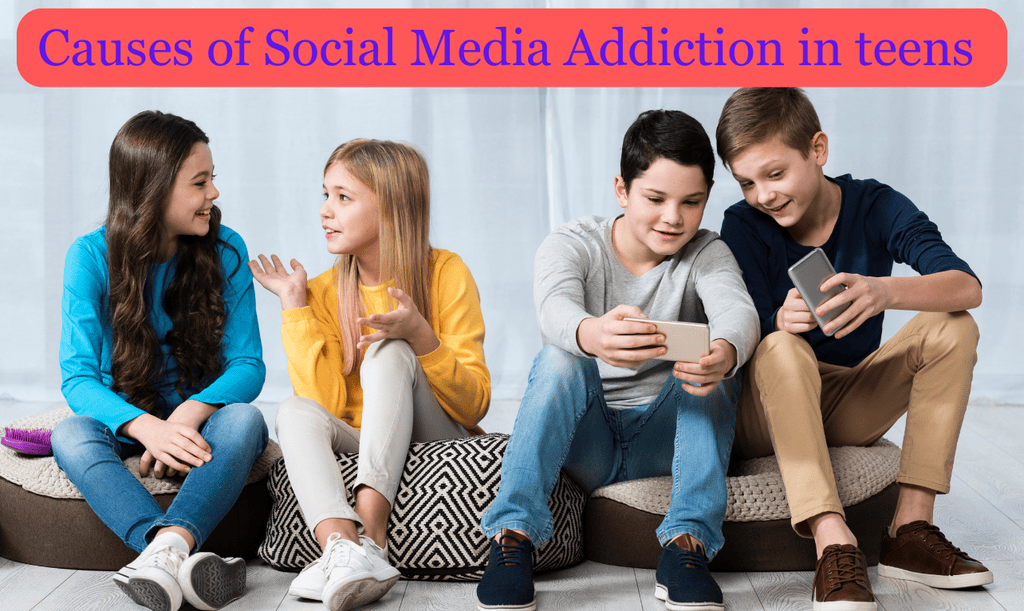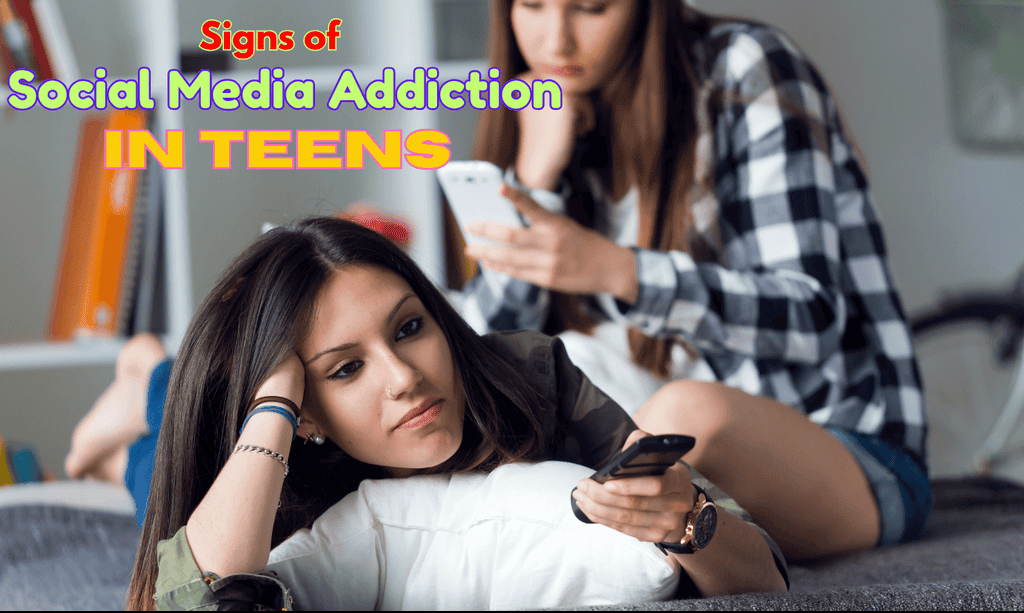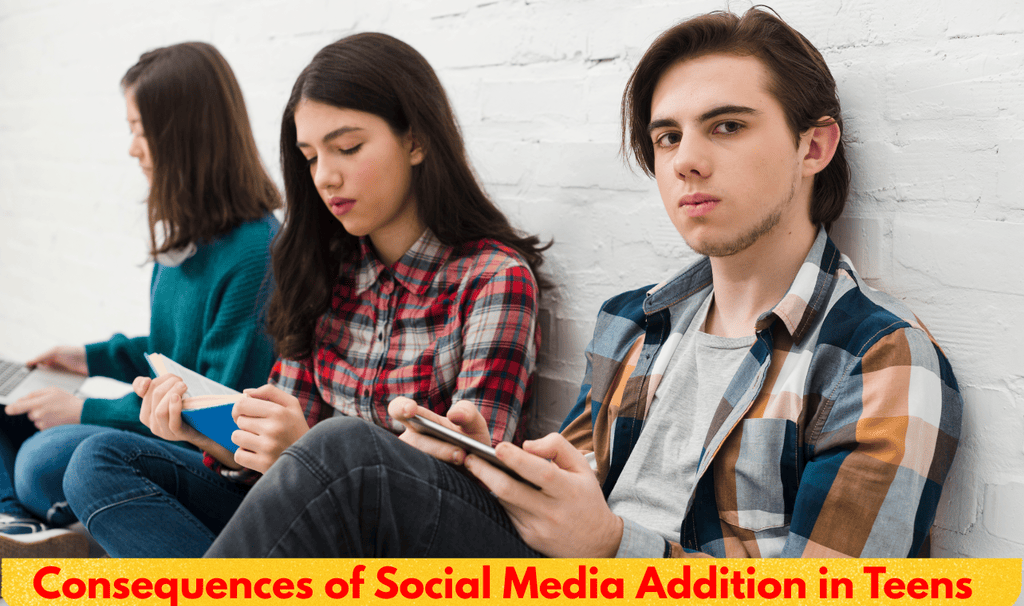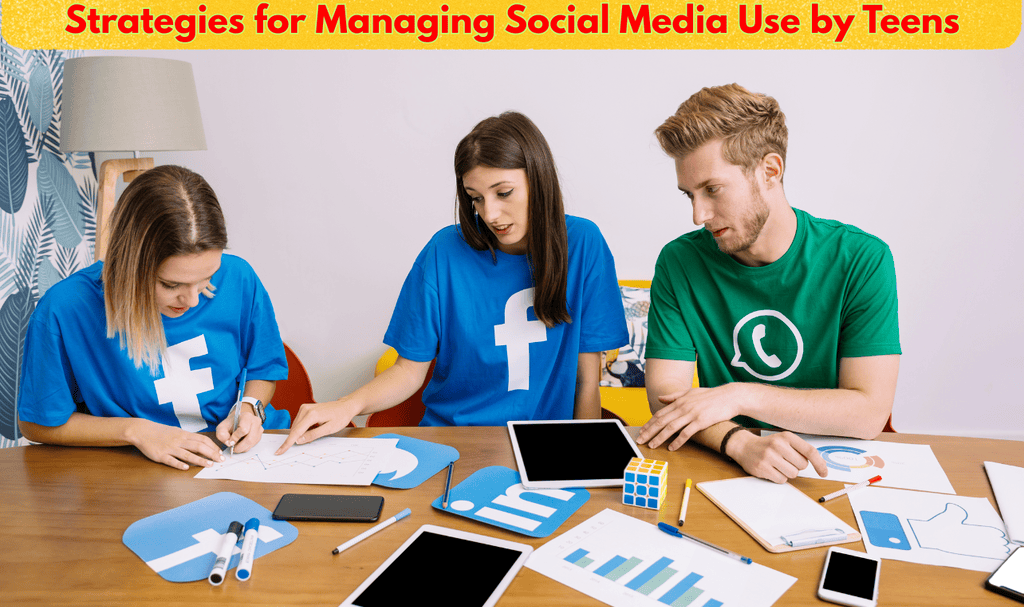Social Media Addiction in Teens: Causes and Consequences

Social media is reckoned as an addiction in teens. In this article, we shall discuss this crucial issue with its signs, causes, and consequences and will put some suggestions strategically as to how to manage the same in teens. Especially for teens who grew up in the digital age, social media has become a fundamental component of everyday life. Some of you may interact with friends, express your creativity, and keep up with news and trends on platforms like Instagram, TikTok, and Snapchat.
Table of Contents
ToggleAlthough these platforms can be fascinating and enjoyable, overuse of them has turned into an increasing concern. Numerous teenagers spend hours every day posting, scrolling, and communicating online, frequently at the price of their relationships in everyday life, their academic performance, and their mental health. Social media addiction, an increasing issue that requires significant focus, is now being defined as this pattern of excessive use.
Causes of Social Media Addiction in Teens
Teenage addiction to social media is triggered by many different kinds of factors. Apparently the most common explanations are as follows:
- Fear of Missing Out (FOMO): Teens can experience pressure to keep up social media connections and stay updated so as to avoid being left out or missing important events.
- Dopamine Release: Social media platforms are designed to stimulate the reward system in the brain, which releases dopamine and delivers an enjoyable moment.
- Social Validation: Teens may use social media to measure their social standing and self-worth by calculating the number of followers and likes they get.
- Escape from Negative Emotions: Social media can be utilized as an alternative way of ignoring negative emotions like anxiety, stress, or melancholy.

Consequences of Social Media Addiction in Teens
Teens that use social media excessively can encounter serious consequences such as
- Mental Health Problems: Addiction to social media has been linked with increased incidences of loneliness, anxiety, and depression.
- Sleep Deprivation: Constant social media notifications and spending time on screens may interfere with cycles of sleep, causing sleep deprivation.
- Social Isolation: Teens who use social media frequently may become socially isolated as they replace real-life connections with online ones.
- Academic Issues: Teens who have an addiction to social media spend less time studying and more time on social media, which might have an impact on their academic performance.
Signs of Social Media Addiction in Teens
For early intervention, it is crucial to identify the indications of teen social media addiction. Common indications include:
- Excessive use: Using social media for more than five to six hours per day.
- Withdrawal Symptoms: Feel restless, nervous, or anxious when unable to use social media.
- Loss of Interest in Other Activities: A decrease in interest in once-enjoyed activities like sports or hobbies.
- Continued Use Despite Negative Consequences: Using social media in spite of negative results, such as fractured relationships or substandard school performance.

Strategies for Managing Social Media Use
A number of strategies must be used to regulate social media use, including the following:
- Setting Boundaries: Setting rules and limitations for social media use, such as times or locations when devices are not permitted.
- Encouraging Physical Activity: Encouraging teenagers to take part in physical activities like exercise or sports.
- Promoting Face-to-Face Interactions: Encouraging teenagers to take part in group activities or social organizations that encourage interactions with one another.
- Monitoring Use: maintaining a check on social media utilization while setting time limits for it.

Conclusion
Teenager social media addiction is a serious issue that has to be managed. Parents, teachers, and youngsters themselves may work together to promote appropriate social media use and minimize its negative consequences by being conscious of the causes and effects of social media addiction.
Resources
- The premier resource for mental health knowledge and support is the National Alliance on Mental Illness (NAMI).
- The Jed Foundation is an organization dedicated to prevent teen and young adult use of drugs and to support mental health.
- Common Sense Media: A website offering guidance for parents and teenagers as well as assessments and rankings of social media websites.
Together, we can mitigate the potential risks of excessive social media use and help teenagers in developing healthy social media habits.
